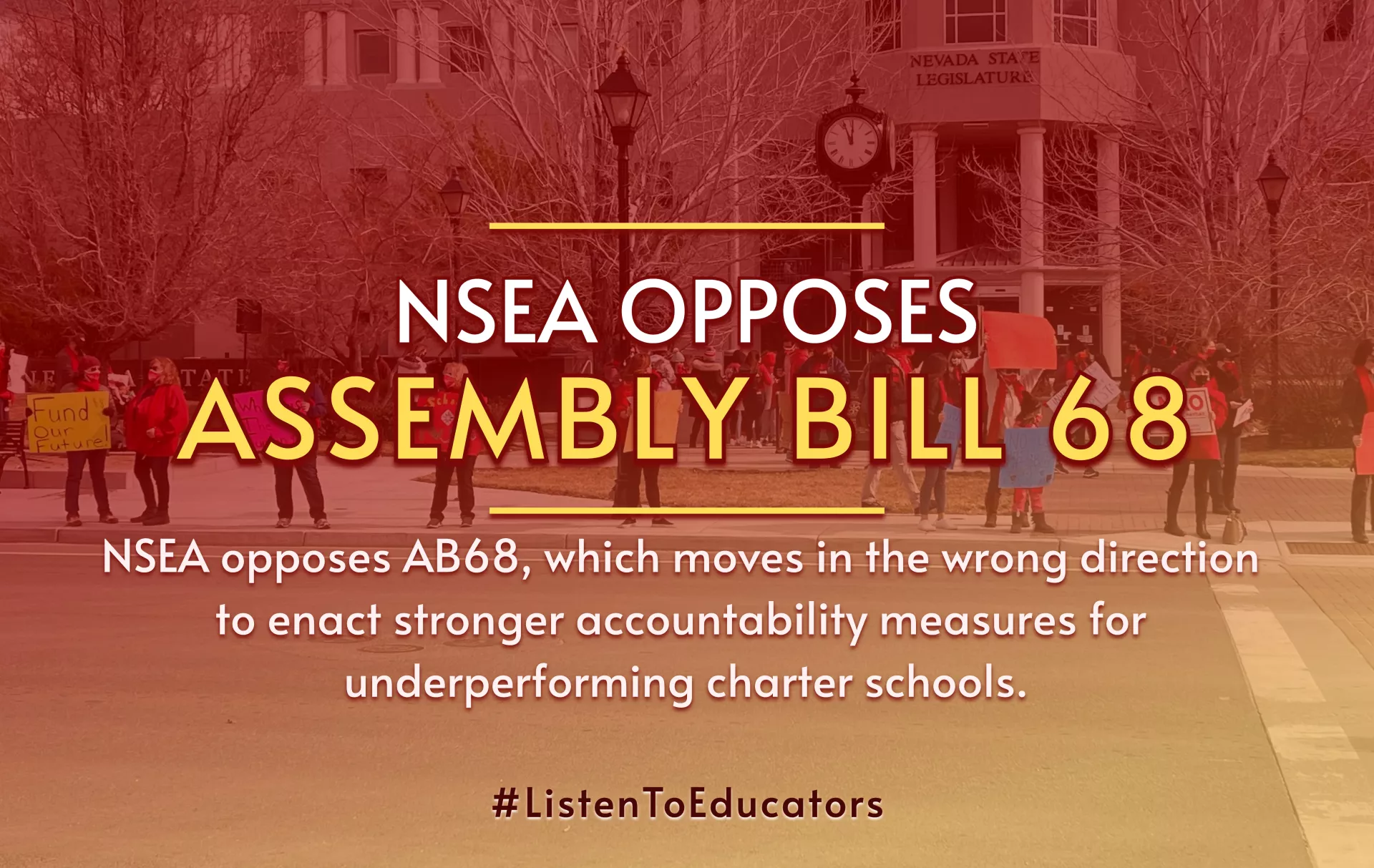During last session, NSEA pushed for greater accountability for charter schools. While our proposal to cap charter school expansion was not successful, the legislature did pass a 5-year “Growth Management Plan” for charters.
Interestingly enough, during the same year, this “Growth Management Plan” was adopted, the Charter School Authority approved nearly 5000 new charter slots.
While there have been some improvements to charter accountability since last session, including actually conducting site visits by the State Public Charter School Authority (SPCSA), let’s be honest with each other—the Charter School Authority is only now clearing a relatively low bar of accountability. While it is great the Charter Authority has begun to address the baked-in biases against disadvantaged students, when looking at overall charter student populations, charter schools serve proportionally fewer at-risk students, English learners, and students with disabilities.
Even with progress on more diversity in new charter seats, there is no path for charters to achieve parity in the foreseeable future.
During the COVID-19 pandemic, we saw continued unaccountability as many charter schools gamed the system by triple-dipping— taking state funds, CARES Act funds, and PPP funds, all while playing by their own set of rules.
Given these concerns, NSEA opposes AB68, as we believe language offered in Section 4.6 lessens accountability for underperforming charters. Under current statute, the sponsor of a charter school shall terminate the charter contract of the charter school if the charter school receives three annual ratings established as the lowest rating possible in a 5-year period. The new language would instead allow a charter school to continue to operate by only serving those grade levels not underperforming.
This could allow a charter school to avoid accountability by just eliminating a single or handful of grade levels.
This seems like the State Public Charter School Authority working around the current accountability standards for underperforming charter schools, so they don’t have to take the more difficult but necessary action of termination.
